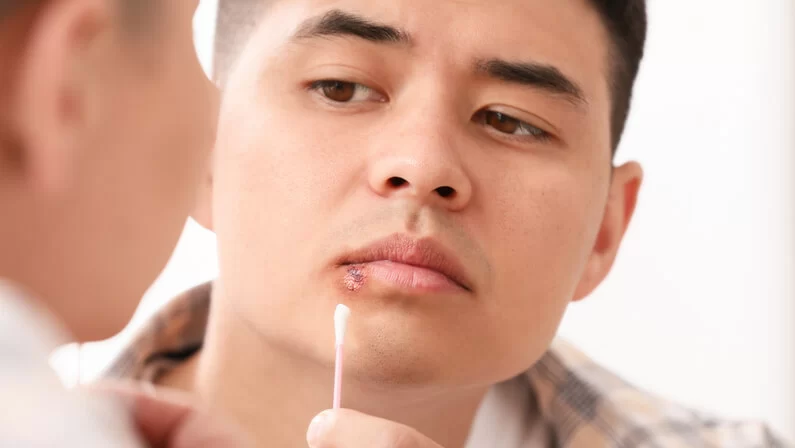
Can You Go to the Dentist with a Cold Sore? Understanding the Risks
When I developed a cold sore on my lip just days before a scheduled dentist appointment, I found myself wondering, "Can I still go to the dentist with a cold sore?" Like many people, I’ve had cold sores before, and while they’re not particularly uncommon, I wasn’t sure how they might affect my dental visit. Would it be safe for me to go? Could it affect the dentist or my treatment? If you’re in the same situation, let me walk you through what I learned about cold sores and dental appointments and the best course of action when you have one.
1. What is a Cold Sore?
A cold sore, also known as a fever blister, is a small, fluid-filled blister that typically appears on or around the lips, though it can sometimes appear inside the mouth or on the nose. Cold sores are caused by the herpes simplex virus (HSV-1), which is highly contagious. The virus can lie dormant in your body and reactivate under certain conditions, such as stress, illness, or exposure to sunlight. I’ve noticed that whenever I’m run down, a cold sore seems to pop up, and it’s usually accompanied by itching and irritation.
Understanding what a cold sore is and how it spreads is crucial in determining whether it's safe to go to the dentist with one. Cold sores are contagious, especially when the blister is active, and they can spread through direct contact with the sore or through contaminated surfaces like towels or utensils. With this in mind, it was clear to me that I had to consider the potential risks before heading to my dentist’s office.
2. Should You Go to the Dentist with a Cold Sore?
The short answer I found after researching is that it depends. Many dentists are cautious about treating patients with active cold sores due to the contagious nature of the virus. Here’s why:
- Risk of Spreading the Virus: When you have a cold sore, the virus is most contagious during the blister phase, and it can be spread through contact with saliva or the affected area. Dentists are particularly concerned about preventing cross-contamination in their clinics, as they treat numerous patients throughout the day.
- Potential for Infection: If the cold sore is near the area of treatment (for example, if you’re having a cleaning or dental work done near your lips or mouth), there is a risk of the dentist or dental staff coming into contact with the virus, which could lead to an infection.
- Oral Treatment Concerns: Some dental procedures, such as cleanings or extractions, might irritate the area around the cold sore, potentially making it worse or causing more discomfort. The dentist might also find it difficult to perform certain treatments effectively if there is a cold sore present.
After considering these factors, I realized that it might be best to reschedule my appointment to avoid potentially spreading the virus and to ensure the cold sore didn’t interfere with my treatment. Many dentists will appreciate the proactive approach and will often allow you to reschedule without penalty if you call ahead to inform them.
3. What Should You Do If You Have a Cold Sore and a Dental Appointment?
If you do have an upcoming dental visit and you’re dealing with a cold sore, it’s important to take a few steps to manage the situation appropriately:
- Call Ahead: The first thing I did when I realized I had a cold sore was to call my dentist’s office and explain the situation. Most dentists will appreciate you informing them in advance, and they may recommend rescheduling or offer advice on how to proceed.
- Reschedule if Necessary: If your dentist recommends rescheduling, it’s best to follow their advice. Cold sores are highly contagious, and waiting until the cold sore heals will prevent any risk of transmission. Typically, once the cold sore scabs over, it’s less contagious, and you may be able to go ahead with your appointment.
- Take Care of the Cold Sore: In the meantime, treat the cold sore to help it heal faster. I’ve found that using over-the-counter creams or ointments designed to treat cold sores can reduce the healing time. Also, avoiding touching the cold sore and maintaining good hygiene helps prevent further spread.
- Follow Preventive Measures: If you need to go to your appointment with a cold sore, consider wearing a mask or lip balm to help cover the affected area. While this may not fully prevent transmission, it can help reduce the chance of cross-contamination during your visit.
4. Can Cold Sores Affect Dental Treatment?
Another important point I learned is that cold sores can indeed affect dental treatments, especially when the cold sore is active. Dental work near the cold sore can be uncomfortable, and if there’s an active lesion, the dentist might avoid the area to prevent further irritation. For example, if you’re getting a cleaning, the dentist or hygienist might be cautious when cleaning near the area of the cold sore to prevent discomfort and further spread of the virus.
For more invasive treatments, such as fillings, crowns, or extractions, the presence of a cold sore can complicate the procedure. It’s generally best to wait until the sore has healed to ensure the treatment area is safe and clean.
5. Can You Prevent Cold Sores from Happening During Dental Visits?
While you can’t always predict when a cold sore will appear, there are a few steps you can take to reduce the likelihood of one popping up before your dentist appointment:
- Manage Stress: Stress is a common trigger for cold sores. If you’re nervous about your dental appointment, try to manage stress through relaxation techniques or deep breathing exercises.
- Boost Your Immune System: Maintaining a healthy lifestyle with a balanced diet and regular exercise can help keep your immune system strong, which may reduce the chances of an outbreak.
- Avoid Triggers: If you know that specific triggers (like sun exposure or certain foods) cause your cold sores, try to avoid them leading up to your appointment.
While it’s impossible to guarantee you won’t get a cold sore before your dental visit, being proactive can reduce the frequency of outbreaks and ensure your dental care is not delayed.
6. Final Thoughts
In my case, I opted to reschedule my dental visit to avoid any complications with my cold sore. I found that taking a few extra days to allow the cold sore to heal was the best decision for both my oral health and for the safety of the dental staff. Cold sores are common, and it’s important to handle them with care, especially when visiting the dentist. By being informed and communicating with your dentist, you can ensure that your dental care goes smoothly and that you avoid any potential complications.







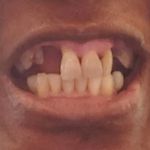 Cicero Dental Center4.0 (222 review)
Cicero Dental Center4.0 (222 review) Long Grove Dental5.0 (1022 review)
Long Grove Dental5.0 (1022 review)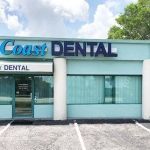 Coast Dental4.0 (440 review)
Coast Dental4.0 (440 review)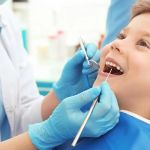 Patricia Pasnikowska DDS5.0 (105 review)
Patricia Pasnikowska DDS5.0 (105 review)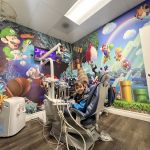 Children Dental World4.0 (1512 review)
Children Dental World4.0 (1512 review)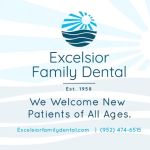 Excelsior Family Dental PLLC5.0 (304 review)
Excelsior Family Dental PLLC5.0 (304 review) The Importance of Oral Health Education During Pregnancy for a Healthy Pregnancy
The Importance of Oral Health Education During Pregnancy for a Healthy Pregnancy Best Tips for Brushing Your Teeth Properly for Healthy Gums: Essential Techniques for Oral Health
Best Tips for Brushing Your Teeth Properly for Healthy Gums: Essential Techniques for Oral Health Why Skipping Dental Checkups Can Lead to Bigger Oral Health Problems
Why Skipping Dental Checkups Can Lead to Bigger Oral Health Problems Advantages of Porcelain Dental Restorations
Advantages of Porcelain Dental Restorations How Can Diabetes Cause Tooth and Gum Problems? Preventing and Managing Oral Health Issues
How Can Diabetes Cause Tooth and Gum Problems? Preventing and Managing Oral Health Issues Healthy Habits for Promoting Good Oral Health and Hygiene: Tips for a Healthy Smile
Healthy Habits for Promoting Good Oral Health and Hygiene: Tips for a Healthy Smile